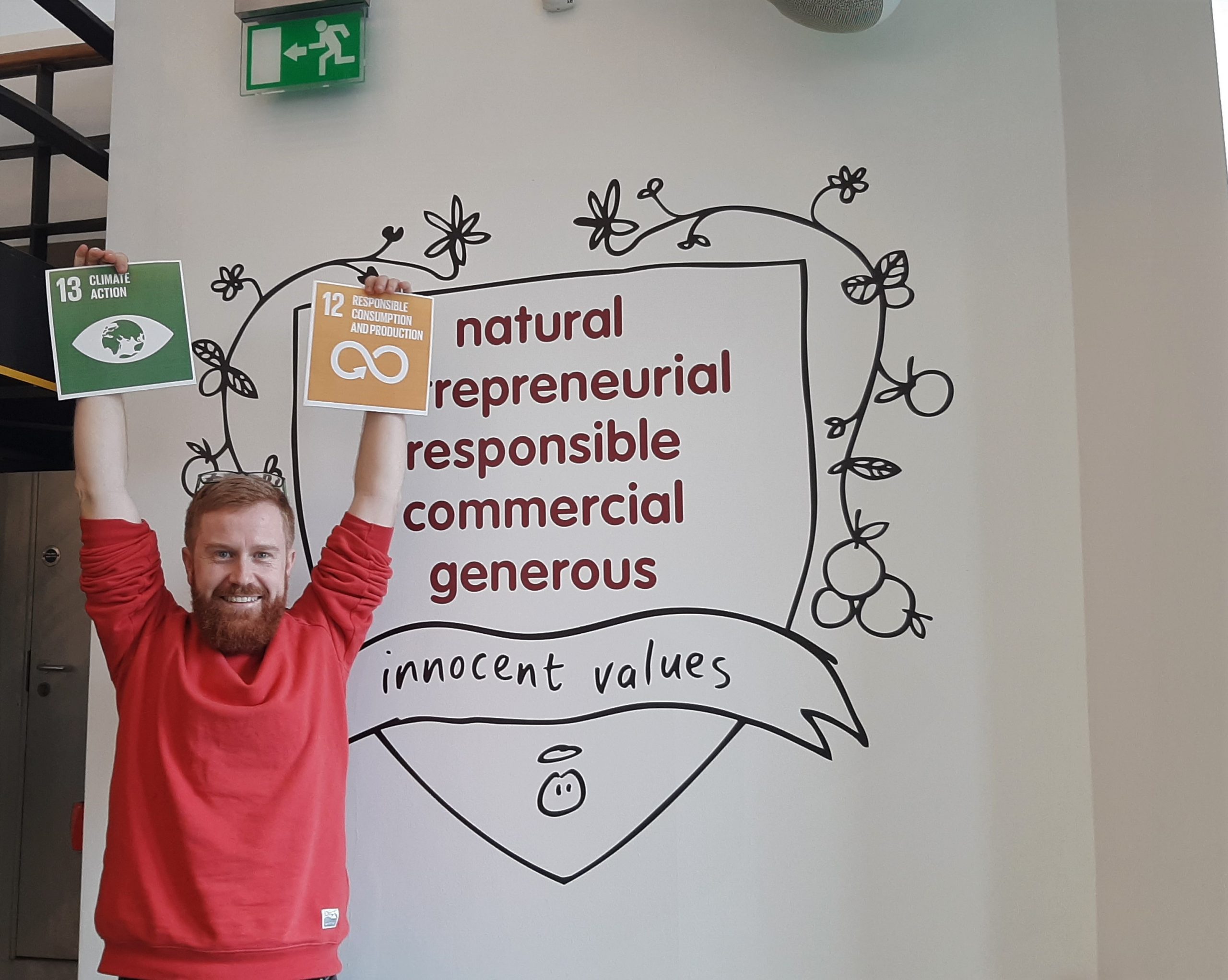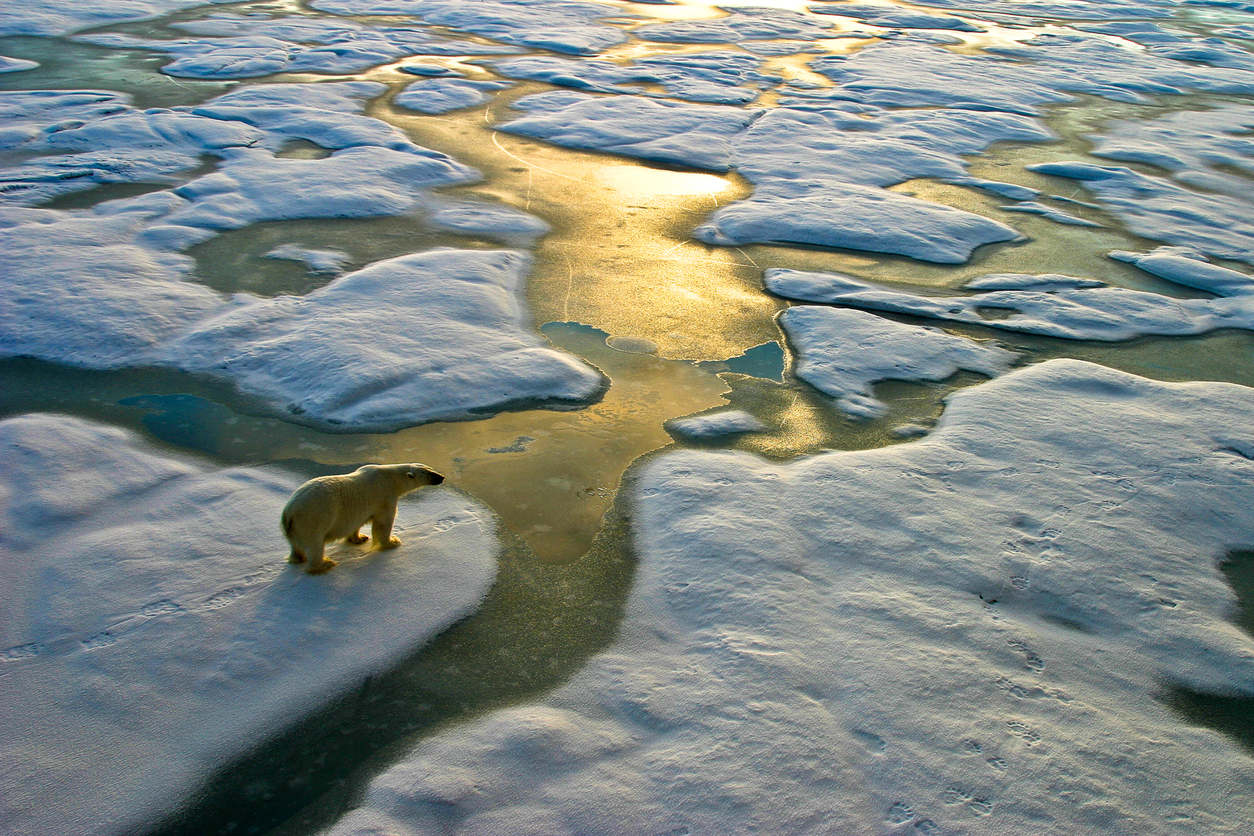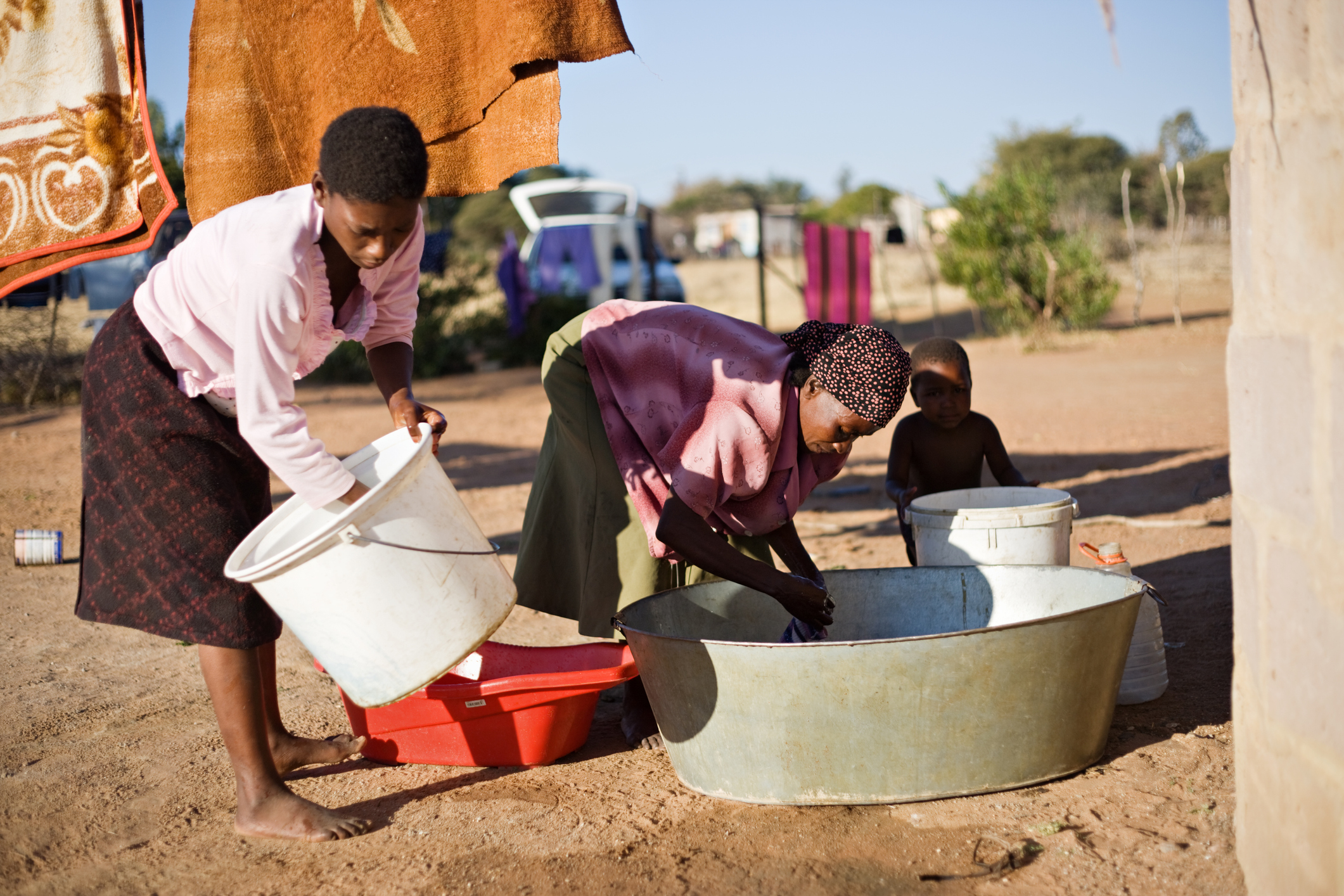In the second part of our interview (you can catch the first part here) with innocent sustainability manager Simon Reid, we delved even deeper into the world of sustainable business.
We discussed shifiting attitudes towards climate change, supply chain transparency, business accountability and what words we ought to live by? Read on as we spill the sustainability beans…
Throughout your career, have you noticed a shift in attitudes towards protecting the planet?
I’ve been in the sector for 15 years and for most of that time not really, it’s felt like you’ve always had to be banging on the door and make people listen.
Probably in the last one or two years I’ve seen a really big shift in my role…before it was more about agitating and trying to get things happening, whereas now it’s about doing.
There’s so much agitation coming from drinkers, customers, our marketing team saying “Give us more, we need to do more about this, we want to do more about this”.
They’re looking to us for the answers and we’re scrambling as much as we can to go as fast as we can to give people answers.
It does feel like what used to be a strong headwind has turned into a tailwind. Drinkers and consumers are clamouring for more on sustainability and more on health, which – for a sustainability professional – is great because you’re pushing on an open door.
Certainly in a place like this, when the marketing teams and budgets get on board it just makes things so much easier.
There has been a really noticeable shift, probably coinciding with the Blue Planet [BBC series], Greta, the school strikes, Extinction Rebellion, all of that stuff. Who knows how long it will last, touch wood that we’ll continue to have all this pressure to do things differently.
“It’s the pace of change that is what keeps me awake at night: can we go fast enough?”
Even like a year ago or two years ago, the thought of BP saying that they’re going to be net zero by 2050 would have been fairly laughable.
Now you’ve got EasyJet who have gone carbon neutral and so many companies are waking up to the fact that consumers expect this now. They need to deliver it.
I think we are seeing a change and I just hope that it’s not too late and that there’s enough drive and dedication to deliver change fast enough to stay below 1.5.
It’s the pace of change that is what keeps me awake at night: can we go fast enough?
When I first started out, even getting companies to use renewable electricity or stuff like that was always an uphill slog and trying to improve the return on investment and all that.
It feels like the conversations changed quite significantly now and fingers crossed / touch wood that’s a trend that continues.
Where do you think the power lies to bring about change: the individual, government or businesses?
I think if we’re going to solve some of these big issues, like climate change and poverty, you can’t rely on any one group. You need governments; you need consumers; and you need businesses to do the right thing as well.
I do think historically businesses have hidden behind arguments such as “it’s for the government to legislate in a certain way” or “if consumers don’t buy it we won’t sell it”.
It’s not good enough anymore. Businesses have a responsibility to do the right thing and be responsible. We can’t rely on governments or consumers to do that. I think there is a change: more and more businesses are seeing that.
For things like climate change, all of the global targets and policies don’t get us to 1.5 degrees. They only get us to 3, 4 or 5 degrees. So if we just rely on the government we’re not going to get there.
We need everyone to be pulling in the same direction and businesses need to step up and call out government where it’s not acting fast enough or decisively enough or just take the lead and say “we’re just going to go ahead and do it anyway because it’s the right thing to do”.
And it’s amazing how many businesses, particularly in the States, are cracking on with climate change plans despite the fact their government isn’t necessarily supportive of taking much action.
Everyone needs to step up and take some of that responsibility because if not we’re going to run out of time. We can’t point fingers anymore. Everyone’s just got to put their hand up and pull together to figure out a way to solve some of these problems.
I believe there is a gap between the consumer and supply chain. How does innocent’s ‘hero supplier programme’ bridge this gap?
The supply chains are generally so big and complex now that a lot of businesses can hide behind that. We’re not a very big company but are getting bigger and we have over 100 suppliers working in over 30 different countries. So the whole supply chain does quickly get very complicated.
You hear a lot of climate change targets where businesses are just looking at scopes 1 and 2. [Emissions are broken down into: scope 1, direct emissions; scope 2, indirect emissions from electricity use; and scope 3, all other indirect emissions].
They say “we’re going to be carbon neutral”, but it’s only their scope 1 and 2 emissions which might be a small fraction of their overall emissions.
For us, for example, our scope 1 and 2 emissions are less than 1% of our overall emissions so if we just said “we’re going to be carbon neutral on that”, there’s no point.
We’re missing out the elephant in the room, which is that 99% is embedded within other parts of our business: within our supply chain primarily.
You absolutely need to take responsibility for that part of your supply chain and it’s something we take very seriously. So from an ingredients perspective, we always make sure we get boots on the ground when we’ve got a new ingredient coming in.
We’ll go out and meet with the supplier. We’ll usually audit them to some social standard to make sure there are no social issues going on within that area.

We also, within a number of our suppliers, work on what’s called our ‘hero supplier programme’. This is a programme where we look to push best practice on sustainability within our supply chain.
It covers four different areas: First there is sustainability management. Do they have the right people and processes in place to really be a sustainable business?
The second is around energy and climate change. We want all of our suppliers to be on this journey with us for a world below 1.5 degrees. What do they have in place to really achieve that?
Then there is a pillar around water, about reducing the amount of water they’re using. If they’re in a water stressed area, what are they doing about that?
And finally there is a waste perspective, cutting out waste as far as we can and embedding the principles of the circular economy and how our suppliers operate.
We have a lot of different suppliers, but we try to work with suppliers who as far as possible share our values and our beliefs. With programmes like the hero programme we can really push them to achieve more on sustainability.
From an ingredients perspective as well, we use what’s called the Sustainable Agriculture Initiative Farm Sustainability and Assessment Tool (SAI FSA). It’s essentially a tool that we use to try to work with our farmers on increasing environmental and social performance on farms.
We make sure people are being paid a good wage, there’s the right protective equipment, that they’re looking at things like carbon, reducing fertiliser use, pesticide use, all of those sorts of things.
Also a lot of our ingredients are certified as well, whether that’s rainforest alliance, Fairtrade or organic. There are a number of different certifications that we use.
It’s about different ways to work with suppliers to make sure that they’re considering the social and environmental impact of their business, not just about the profits.
There are some consumers who are really passionate about it. But most people don’t look into it in a huge amount of detail and fair enough.
Life is busy enough. You’ve got so much information flowing. Sometimes, if you just want a drink you just want to grab a drink!
It’s about brand trust as well. When you see a brand like innocent or pukka tea, you already have an association with that brand as doing the right thing.
We have it as part of our promise to our drinkers that our product is sustainably sourced. If we break that promise, we lose that trust with drinkers then the brand is in trouble.
So we put a lot of time and effort into making sure that we can live by that promise and we can hold our heads high when people ask questions and want to talk about it.
Supply chain complexity is quite a cool world. We are starting to see some interesting things happening around block chain: for example a fish might be tagged when it’s caught, and keeps the tag all the way through the supply chain to the supermarket so that you can see exactly where that fish was caught.
There’s some really interesting things going on around traceability but I think we will see a lot more of it in the next few years.
Do you think more businesses need to be held accountable for their supply chains? And how can we increase transparency over this?
Yes, absolutely. For most of history, a lot of businesses haven’t been. They’ve said “we just buy it from these guys”. Ultimately, we’re the brands that the consumers will see. We need to take responsibility for what goes into our products, whether that’s the packaging or the ingredients.
If not, it’s a massive brand trust issue. If we want our drinkers to keep coming back and buying our drinks, they need to know that they’re buying from a company which has got this stuff in hand.
It means they can buy without worrying about where this drinks come from or the conditions workers have been in or the impact on the planet.
People want to make simple choices when it comes to buying a drink so brands need to step up, take that accountability and not knowing is not an excuse anymore. Not knowing is not an answer. You can’t hide behind ignorance anymore, and brands that do so are at their own peril.
I think it was just this weekend, in the paper, that child labour has been found linked to Starbucks. I’m sure their teams are looking into making sure that this doesn’t happen but you’ve got to keep trying and hunting out these things.
Our new human rights strategy is we want a supply chain that’s safe for workers but unsafe for people who are betraying their workers. So you’ve actively got to hunt out that bad practice and look for it.
There are people that will do unscrupulous things, so it’s a matter of do what you can to find that and make sure it’s not happening on your watch. So absolutely businesses have to take that accountability.
If you had to live by one idea, or quote, what would it be?
It would be something along the lines of “treat other people how you’d want to be treated yourself”. No one likes being treated like crap, including the planet. If everyone just treated each other, and the planet, with respect. It seems so basic.
“No one likes being treated like crap, including the planet.”
We have our values and one of them is to be responsible and one of the proof points under that is ‘just don’t be lame’.
It comes to small things like, we rarely have issues with people leaving dirty things on the side [in the office kitchen] because people take responsibility to clean up their cups after they’ve used them!
That is like basic human decency but that stretches all the way down to “don’t work with suppliers who you know you don’t agree with or don’t fit the bill”. Just don’t do it.
Take the responsible option even if it means an impact on sales or margin or whatever is it. You’ve got to take the right call and do what feels right ■
Main image courtesy of author. Image in article body courtesy of innocent website.






